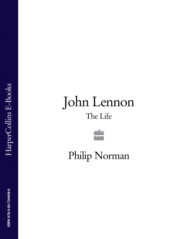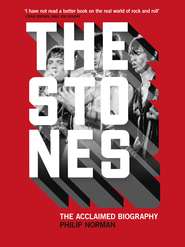По всем вопросам обращайтесь на: info@litportal.ru
(©) 2003-2024.
✖
Mick Jagger
Настройки чтения
Размер шрифта
Высота строк
Поля
Top of the list was that gift from Murray the K, ‘It’s All Over Now’. The Valentinos’ version had hovered on the edge of burlesque, with a hermaphrodite lead vocal and a tempo lifted from Chuck Berry’s ‘Memphis, Tennessee’. Ron Malo turned it into a guitar-jangly pop track with a growling bass riff that was instant jukebox fodder, yet preserved the Stones’ essential roughness and hinted at the myriad influences of the blues mecca around them. While all the band sounded better than they ever had, the main advance was in Mick’s voice, now refined to a punk-Dixie snarl and hovering between self-pity (‘Well, I used to wake ’n mawnin’, git ma brekfusst in ba-a-id . . .’) and yah-boo triumph (‘Yes, I used to looeerve her, bu-u-rd it’s awl over now . . .’). Bobby Womack’s original lyric spoke of the errant girlfriend’s having ‘spent all my money . . . played the high-class game’, which Mick amended to ‘half-assed game’.
Marshall Chess was amused to see Mick, Brian and Keith behave in the studio as they thought their blues masters did, ‘swigging Jack Daniel’s from the bottle, where our guys would’ve poured it into a glass and sipped it’. Partly, this was nerves; they expected real Chicago bluesmen to tear them to pieces for their presumption. But in fact they were met with nothing but friendliness. During the first day’s session two of their greatest heroes, Willie Dixon and Buddy Guy, both dropped by Malo’s studio to listen and bestow compliments and encouragement. On their second morning they found themselves walking in through Chess’s front lobby beside an immaculately dressed man with the face of a merry black Toby Jug – none other than Muddy Waters, without whose catalogue (not least ‘Rollin’ Stone’) they would never have got started. Muddy carried himself as regally as a king but, on seeing roadie Ian Stewart struggling with the Stones’ equipment, picked up an amp and carried it into the studio for them.
At the end of their second day, the great Chuck Berry himself drove in from his country-estate-cum-hotel, Berry Park, to take a look. Though never noted for philanthropy to young musicians, he could not but be softened by the Stones’ devotion – and the number of his songs they were covering that would pay him royalties. ‘Swing on, gentlemen,’ he told them in flawless Berry-ese. ‘You are sounding most well, if I may say so.’
Keith was always to remember a beyond-brilliant Chess session musician named Big Red, a huge black albino with a Gibson guitar that looked ‘like a mandolin’ in his hands. During breaks from their own session, Mick, Keith, Charlie and Stu used to creep into the next-door studio and listen to Big Red, but could never pluck up courage to ask him to sit in with them. ‘We just thought we were terribly lucky to be there, so let’s learn what we can,’ Keith would recall. ‘It was like being given extra tuition.’
And Mick? Before leaving Britain, he’d told an interviewer with unusual candour, and passion, that his main objective in America was to meet as many of his blues idols as possible, and that even ‘to see and hear them work in person will be a big thing for me’. What happened with Chuck and Muddy and Willie and Buddy and Big Red in Chicago was, by a long way, the most thrilling experience of his life thus far. But afterwards it was to be swallowed up by all-enveloping Jagger amnesia. ‘I don’t remember going to Chess,’ he would claim. ‘It’s just something I read about in books.’
Back in New York, things decidedly improved with a better hotel, the Park Sheraton (albeit still in shared rooms), and two sold-out concerts, like the Beatles’, at the city’s illustrious Carnegie Hall. After the second show, there was a party at the hotel with guests including the New York Post pop correspondent, and Bob Dylan’s close friend, Al Aronowitz. ‘The first thing we saw when we walked in,’ Aronowitz recalled, ‘was Mick sitting on a bed, surrounded by a flock of elegantly styled chicks, fluttering as if they all wanted to rub his body . . . Okay, Mick’d discovered room service.’
There was also a first glimpse of the Jagger attitude to women that we will come to know so well. At one point, Gloria Stavers, the influential editor of 16 Magazine, approached him among his seraglio to tell him how much she’d enjoyed the show. ‘Should I be flattered?’ he replied.
With the release of the Stones’ ‘Merseybeat’ song ‘Tell Me’ as a US single increasing album sales, and a general sense of making some headway at last, it was clearly vital for them to extend their visit beyond its scheduled three weeks. Instead – bafflingly to new American converts like Aronowitz and Murray the K – Oldham whisked them home as scheduled. The excuse he gave out was that they had to honour a booking to play at the summer ball of Magdalen College, Oxford. The truth was that he couldn’t afford to keep them in America a moment longer. In contrast to later forays there, he calculated the tour had earned them ten old shillings, or fifty pence, each.
Вы ознакомились с фрагментом книги.
Приобретайте полный текст книги у нашего партнера:
Приобретайте полный текст книги у нашего партнера:







